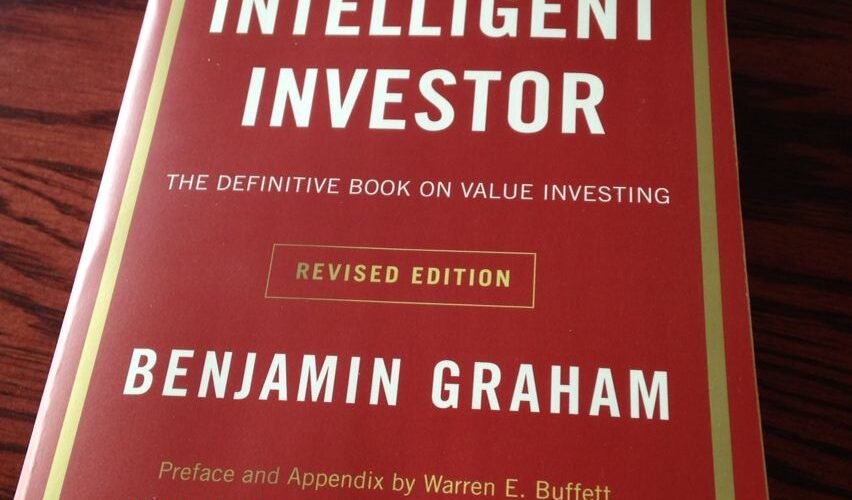Top Books Every Wealth Planner Should Read

Wealth planning demands more than numbers and charts. A good planner needs wisdom, vision, and the ability to understand people. Books help build those qualities. They bring lessons from history, psychology, finance, and real human behavior. If you want to guide clients with confidence, you need a strong reading habit. Here are some of the top books every wealth planner should read.
1. The Intelligent Investor by Benjamin Graham
This classic shows how to invest with discipline. Graham explains the difference between speculation and investment. He highlights the value of patience and long-term thinking. His idea of “margin of safety” helps planners protect clients from risks. Warren Buffett often calls this book his bible of investing. Every wealth planner should read it to understand how to build a safe portfolio.
2. Rich Dad Poor Dad by Robert Kiyosaki
This book teaches financial literacy in simple language. Kiyosaki explains the difference between assets and liabilities. He shows why financial independence matters more than just earning a high salary. Wealth planners can learn how to explain money concepts to clients in a way that feels clear and practical. The book also stresses the importance of mindset in wealth creation.
3. Your Money or Your Life by Vicki Robin and Joe Dominguez
This book links money with life purpose. It teaches readers to evaluate how they spend both money and time. Wealth planners can use its ideas to guide clients toward balance between financial goals and personal happiness. The book also provides a nine-step program that helps people achieve financial freedom. It gives planners tools to inspire clients beyond just investment returns.
4. The Millionaire Next Door by Thomas J. Stanley and William D. Danko
Many people assume wealth looks like luxury cars and big houses. This book proves otherwise. It shows that real millionaires live modest lives. They save, invest, and avoid waste. Wealth planners can use this book to challenge myths about money. It reminds planners that the key lies in habits, not in flashy lifestyles. Clients who read this book often feel motivated to adopt better financial discipline.
5. Thinking, Fast and Slow by Daniel Kahneman
Wealth planning is not just about money; it is about behavior. Kahneman, a Nobel Prize–winning psychologist, explains how humans make decisions. He talks about two systems of thinking: fast and intuitive versus slow and logical. Planners can learn how biases affect investment choices. This book gives insight into why clients panic during market crashes or chase quick profits. It helps planners design strategies that account for human psychology.
6. The Psychology of Money by Morgan Housel
This modern book explains money through stories. Housel shows that financial success depends more on behavior than intelligence. He stresses that luck and risk play a big role in wealth. Planners can use his lessons to talk openly with clients about uncertainty. The book teaches humility, patience, and flexibility. It fits perfectly into today’s fast-changing financial world.
7. Common Stocks and Uncommon Profits by Philip Fisher
Fisher introduces the idea of “scuttlebutt,” or learning about companies by talking to employees, suppliers, and competitors. He explains how to judge a business beyond its balance sheet. Wealth planners can learn how to spot strong companies with long-term growth potential. This book pairs well with Graham’s work. Together, they provide both safety and growth perspectives.
8. I Will Teach You to Be Rich by Ramit Sethi
Sethi speaks in a direct, engaging style. He gives readers a six-week plan to improve their finances. He covers topics like saving, budgeting, credit cards, and investments. Wealth planners can use his simple systems to help young clients. His book shows that wealth planning is not only for the rich. With structure and discipline, anyone can build financial security.
9. The Little Book of Common Sense Investing by John C. Bogle
Bogle, founder of Vanguard, argues for index funds. He explains why low-cost investing beats high-cost trading. Wealth planners learn the power of compounding when fees stay low. This book helps planners explain to clients why they should avoid chasing trends. Simple, steady, and cost-effective investing often brings the best results over time.
10. Against the Gods: The Remarkable Story of Risk by Peter L. Bernstein
Risk sits at the heart of wealth planning. This book tells the history of how humans learned to measure and manage risk. Bernstein explains probability, statistics, and the concept of uncertainty in an easy style. Planners can use these insights to understand both the technical and human side of risk. It builds respect for the balance between caution and ambition.
11. The Richest Man in Babylon by George S. Clason
This book uses parables from ancient Babylon to teach money lessons. Its simple rules include “save at least 10% of what you earn” and “make your gold multiply.” Wealth planners can use these timeless lessons to inspire clients. The book proves that wisdom about money does not change across centuries. It also shows the value of storytelling in financial education.
12. One Up on Wall Street by Peter Lynch
Lynch, a famous fund manager, encourages investors to use common sense. He shows how everyday experiences can reveal good investment ideas. Wealth planners can learn to observe the world with fresh eyes. This book teaches how to balance research with intuition. It makes investing less about mystery and more about curiosity.
13. The Behavior Gap by Carl Richards
Richards, a financial planner, explains how emotions hurt investment results. He calls the difference between expected returns and actual returns “the behavior gap.” His sketches and simple language make complex ideas clear. Planners who read this book can help clients avoid costly mistakes. The book reminds us that managing emotions is as important as managing money.
Why Wealth Planners Need These Books
Wealth planning is not only about financial models. It is about trust, discipline, and vision. Books like these shape a planner’s knowledge and character. They sharpen analytical skills and deepen understanding of human behavior. They also provide real-world strategies for investment, risk management, and communication.
When wealth planners read widely, they serve their clients better. They can explain complex ideas in simple terms. They can also guide clients to see money not just as numbers but as a tool for freedom and happiness.
How Companies Like Perfect Finserv Value Knowledge
Many top firms know the value of financial education. Perfect Finserv Company, for example, encourages its advisors to keep learning from great books. Firms that support continuous education build trust with clients. They show that wealth planning is not static; it grows with knowledge. A culture of reading strengthens both advisors and clients.
Final Thoughts
The world of finance keeps changing, but wisdom from great books stays timeless. A wealth planner who reads regularly builds both skill and character. These books offer a mix of technical insight, human psychology, and practical tools. They help planners stay grounded while guiding clients through markets, risks, and life goals.
If you want to grow as a wealth planner, make these books part of your journey. They will sharpen your mind, expand your vision, and make you a better guide for every client you serve.
Also Read – Indian Mythology Books: Modern Retellings Reviewed













